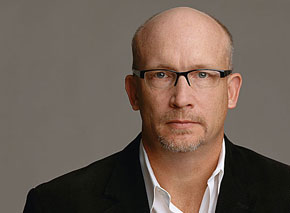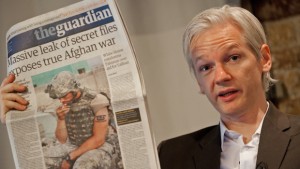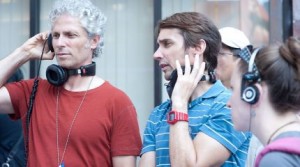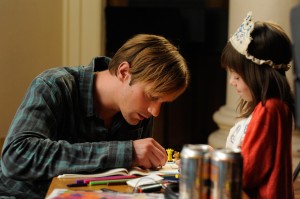Interview: Jordan Vogt-Roberts of The Kings of Summer
Posted on June 4, 2013 at 7:17 am
Jordan Vogt-Roberts’s first feature film is “The Kings of Summer,” the story of three teenage boys who run away and build a house in the woods. It’s one of my favorite movies of the year, so I was very glad to get a chance to talk to him about it.
How did you get involved with this project?
I made a short a few years ago called “Successful Alcoholics.” It balanced tone in a similarly tricky way, starting out funny and then getting more serious. And the company that did “Little Miss Sunshine” had this script. They were looking for a director and I was looking for a movie. I got into this business because I want to make movies. I’d been doing TV and commercials and that’s great to work your way up. But then I read this script and I fell in love with it. I knew it was exactly the movie that I needed to make. Not that I could or wanted to — I needed to tell this story. So I just pitched my ass off, and spent the next couple of months trying to get the job. I didn’t want to say that someone else beat me on merit. It had a jumping off point I wanted for my first feature, a lot of different things at once, magic and beautiful and hilarious — there was so much fun that I could have with it.
You were working with young kids, which is a challenge.
The movie lives and dies with the kids. I have an incredible adult cast — stand-ups and improvisers and brilliant comics like Alison Brie, Nick Offerman, and Megan Mullally. But the movie rests completely on the kids. All of them had to be good. When you watch “Stand By Me” or “The Goonies,” all of those kids are great. I couldn’t cast 25-year-olds. I had to cast kids who as much as they could go through what the characters were going through, who could be as real and awkward as the characters they played. And Gabe and Nick and Moises really took over the roles at a certain point. I forgot what the characters were as scripted and it started becoming them. We did improv training, not so they’d be super-quick and witty and punchy but just so they’d be comfortable enough in their own skin so that if I didn’t yell cut or changed something on the fly, they could adapt to it. My favorite stuff in the movie, a really important part of the movie, is those moments, just glances or mannerisms, that’s what it was to be that age. A movie like this is made up of small, little moments, where watch it and you say, “I love that.” I just wanted to give those kids the trust and faith so they could elevate it themselves.
http://www.youtube.com/watch?v=kYQvwJ0G7qQThe moments that I love are the three jump kids of him exiting the house in different ways, that’s how a kid would pass time. That came from him and me just playing around about the best way to do it. There are so many weird little moments that stem from them cracking me up. I made a weird decision on set where I didn’t want them to think of me as the boss or watch themselves around me. So they would punch me in the arm and treat me as though I was a kid. We created a fun environment. The stuff where they were banging on the pipe, finding out that Gabe played the violin and adding that to the movie. That adds authenticity because it is so particular. The unscripted things are what make me laugh.
In another movie, some of the things Joe’s father said could be disturbing, but you made it feel safe.
A lot of it is that it is from the perspective of the kids, so we know that it is heightened. They can feel a little bit more overbearing or harsher because that is how the kids were perceiving it. And we ran the spectrum of emotions without turning them into caricatures. We did some ridiculously funny things but to ideally always have it be informing the character and the story and the moment.




